Top executives gathered for the 6th Annual Out Leadership LGBT+ Senior Leader Summit in Europe to discuss the the role of business in fostering inclusion amid the rise of global populism.
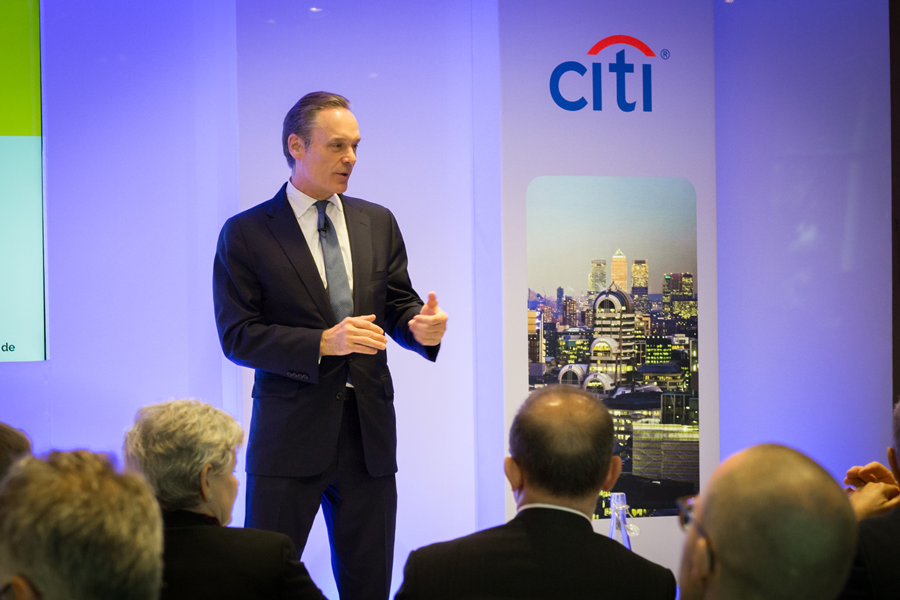
Summit host James C. Cowles, Chief Executive Officer for Europe, Middle East and Africa, Citi, kicked off the day by sharing a story to illustrate his personal investment in Citi’s efforts to create inclusion for LGBT+ people.
“As we were preparing for today’s Summit, one of my colleagues told me about how powerful Citi’s support of Pride in London was for her,” Cowles said. “She told she had called her parents and told them ‘Mom and Dad, don’t worry about me. I’ve found a place at Citi where not only am I accepted, but they embrace who I am. They support me.’ And for me that was a very powerful moment. To know that something we had done as a company had that type of impact. And I will also guarantee you that she is a better employee because of that as well. And so oftentimes you hear about the business case for diversity. Well, it’s that inclusion that’s so important. Because she can come in to work every day and be who she is, and be open about that and not be afraid about that, I guarantee you she is a better employee. She contributes more.
When I look at it in terms of our business, the banking business, it is all about risk and opportunity. And if everyone we have is the same, we’re not going to see all the risks and all the opportunities that are present. And we’re not going to come up with all the solutions for those risks and opportunities. And furthermore, if we don’t have an inclusive environment, we’re not going to get people to contribute. They’re not going to feel free to be able to do that. They’re not going to feel safe to be able to do that. So we have to have an environment where people can offer their ideas. Offer their suggestions. Be who they are. So that we can be everything that we can be.”

(Left to right: Baron Collins of Highbury, John Kittmer, Ruth Hunt)
Ruth Hunt, Chief Executive, Stonewall, chaired the first panel discussion, The Rise of Populism: Keeping Progress on Track and Defending LGBT+ Rights in the Workplace. “We work on a nudge basis, and we persuade people that they could do things slightly differently, whether that’s the Church of England, helping them spell ‘lesbian,’ or the Premier League, helping them acknowledge that they might have [an LGBT+] player, all the way up to some the most sophisticated organizations that are here today,” Hunt said, discussing Stonewall’s work. “And our change model has always been change the law, attitudes follow, but now that’s flipped on its head. We know now that organizations have more power than politicians to transform and drive agendas forward where you operate, and that is an incredibly important power, but it also creates risk.”
Baron Collins of Highbury, former General Secretary of the Labour Party, argued that, much as policy does not equal culture, true societal acceptance for LGBT+ people requires more than changes in the law: “It’s not been about simply changing laws, it has been about how you build support in civil society to affect those changes, and we see that taking place primarily or at least significantly in the workplace. And when we talk about the workplace, we’re not talking about office hours here. We’re talking about how companies engage in our communities. People have a life, and actually successful businesses are those that recognize that your employees do a have a life when they’re not in the office, and how do employers understand and support that.”
John Kittmer, former British Ambassador to Greece, discussed the parallels between the British Foreign Office and multinational companies, both of which must sometimes diplomatically navigate tensions between their expressed values of diversity and inclusion and local cultural expectations. “We, like multinationals, have to think very hard about how we live by our values, how we enable them to work in some very different environments.”

(Left to right: Cowles, Inga Beale, Antonio Simões, Michael Cole-Fontayn)
Next, Jim Cowles returned to the stage to chair the Chief Executive Panel: Leadership in the Board Room and the Executive Office.
Inga Beale, Chief Executive Officer, Lloyd’s of London, noted that when she took the reins at the insurance market, she was surprised to learn what some of her colleagues considered to be impediments to increased diversity. “They’re saying, ‘well we just don’t have the time. You need to take extra time.’ And I’m thinking ‘No, you don’t!’ It’s really telling. I don’t see time as a barrier to diversity at all, you know? I think some of these barriers exist only in people’s heads. One of the things that I often hear, particularly around the conversation around women in leadership, is there aren’t enough women to put in these senior roles. How come, when I arrived at Lloyd’s, I took over a 100 percent male executive team and now have five females on my 10-person executive team. How come?”
Michael Cole-Fontayn, Executive Vice President and Chairman of Europe, Middle East and Africa, BNY Mellon, responded by noting one method his organization has found useful for engaging everyone in the diversity conversation. “We’ve invested quite a lot in this concept of understanding covering, as articulated by Kenji Yoshino. It’s ultimately about disguising your authentic self, and that’s something that everyone in our organization can relate to. You can be a white, middle-aged male and have a very strong Christian faith, but you may be covering that. You can be a white, middle-aged male, with a strong military background and you’re covering that. I think this is a very important concept. If you want that culture of really great results and escalation and challenge within your organization, then thinking about covering is something really worth investing in.”
Antonio Simões, Chief Executive, HSBC Bank plc, discussed how the current climate of trust in leadership broadly is influencing companies’ diversity efforts: “We’re suffering in large companies from the same problem we have in society – a lot of employees just don’t trust the leadership of the world. For us to be more approachable and to have more of a 21st century leadership style, we need to be more empathetic. We need to be more authentic. We need to be more human. We need to be much more aligned to the diversity of the cultures where we operate, the people that work for us. We need to give real examples of why diversity produces better outcomes.”
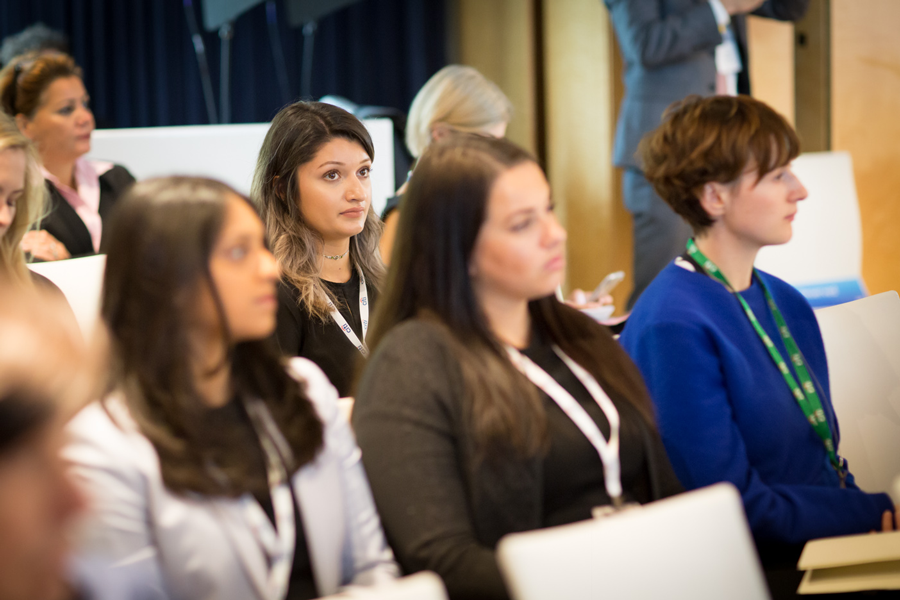
(Summit participants)
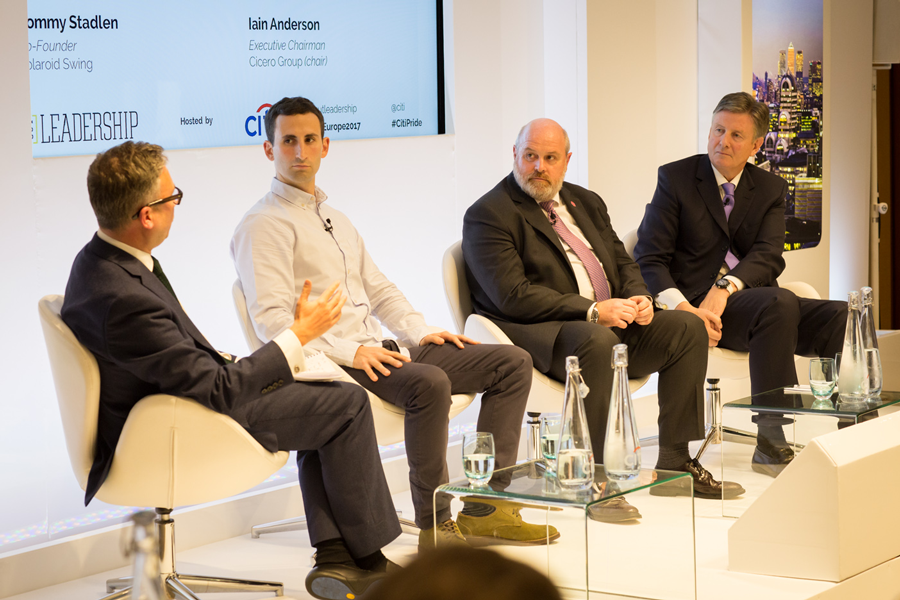
(Left to right: Iain Anderson, Tommy Stadlen, Andy Milnes, Malcom Sweeting)
Iain Anderson, Executive Chairman, Cicero Group, chaired the next panel: Navigating Risk: Global Companies Operating in Markets with Prevalent Anti-LGBT+ Sentiment.
Andy Milnes, Head of Integrated Supply & Trading, Europe and Africa, BP, discussed his stolid support for diversity and inclusion in Singapore. “I have a strong passion in this space, more because I want to win. I want the BP trading business to be the best commodity trading business that there is in the world. The disruption that my marketplace sees every day is just unbelievable. And I cope with that, my team copes with that, is by creating teams full of diversity of thought. That’s how we win. When I talk about diversity and inclusion, I start with that perspective. I’m not doing this because it makes my daughters proud of me, makes them think I’m a good bloke. I want to create an organization that is world class. To do that, I need world class people. To get and retain world class people, you need to create an inclusive environment, an innovative environment full of diversity of thought, and leaders who actually know how to utilize that diversity.”
Tommy Stadlen, Co-Founder, Polaroid Swing, shared one innovative approach his company put into practice: “In the aftermath of the U.S. election, we were one of the first companies to pioneer paid time off for political engagement. Which basically means, if you work with us, in addition to your vacation, in addition to your sick leave, you’ll get a week every year to go out and write letters to your Congress, or protest, whatever it might be, run for office. We made a big song and dance about it because we wanted to go out there and try and persuade the rest of the technology companies to come out and make some noise too and get with the program.Our people really felt like we’d taken a stand, we were there with them, and we were doing the right thing. Got lot of backlash though. And we lost partnerships over it. But we still felt like it was not only the right thing to do, it was the only thing to do.”
Anderson then shifted the conversation to a discussion of how multinationals can drive change through their supply chains. “You talked about partners earlier. How are you able to inculcate your values with companies you work with, and particularly, how are you able to work with supply chain partners, SMEs, that want to do the right thing, but they don’t have that big diversity team, and they don’t have the resources. Are you putting diversity into your RFP’s when you’re tendering?”
Stadlen responded: “One company I think that does this really well is IBM. They’re in over 170 countries around the world, and they simply refuse to say that their standards, that they apply in the U.S. or the U.K. will be different around the world. And they have actually really managed to drive local regulators, local politicians, who need IBM in that market, to change, and they’re fantastic at it.
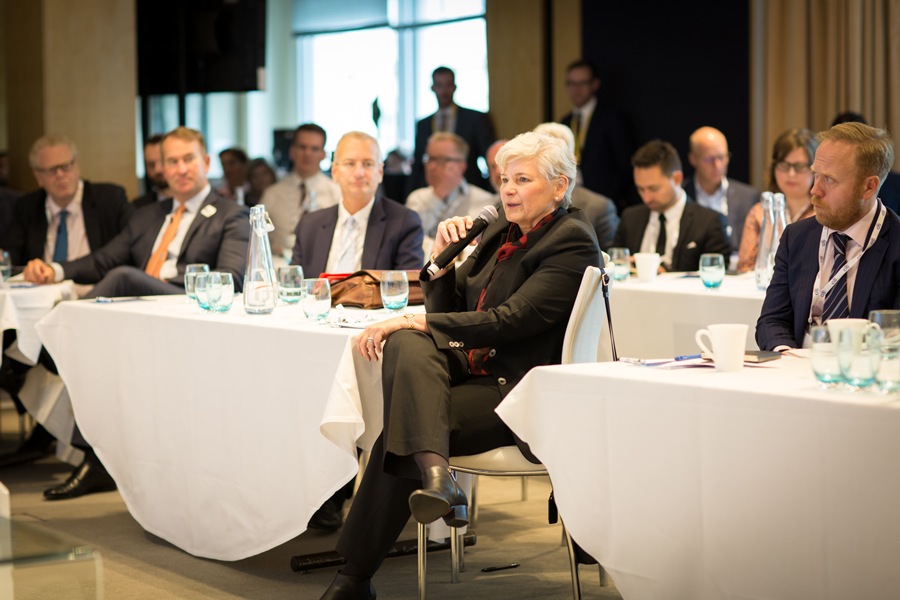
(Claudia Brind-Woody)
Claudia Brind-Woody, Vice President & Managing Director for Global Intellectual Property Licensing, IBM, responded from the audience: “We’re doing things that are very simple, that all of us can do. For example, we’ve started, when we’re renewing our insurance contracts in country for our benefits, requiring that local provider to not just provide domestic partner benefits, but also ensure that domestic partner benefits can be applied to same-sex couples. We’re doing that just in the normal course of business, as a matter of supply chain policy, if they want to win our bid. Just really getting it down into our business as usual has made a difference for us.”
Malcolm Sweeting, Senior Partner, Clifford Chance, acknowledged that organizations could likely benefit from a bit of soul-searching as to whether they’ve made equal progress on driving LGBT+ inclusion in every market where they operate – even markets we might think of as progressive on these issues: “I think there are other parts of the world where we could also make a much more progress. And I think in continental Europe, for us, absent Amsterdam, I think there’s a lot more we could do in continental Europe, where most of our workforce comes from a particular strata of education. Mainly male, still mainly male, and not focused on LGBT+issues at all. I think places like Japan, like continental Europe, are some places where we can make real progress.”
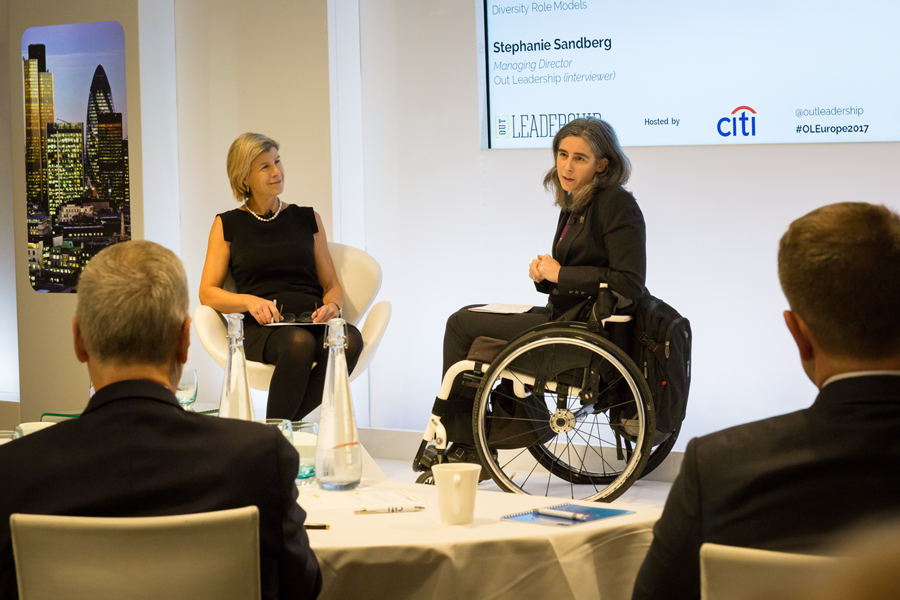
(Stephanie Sandberg, Claire Harvey)
Wrapping up the Summit, Claire Harvey, MBE, CEO, Diversity Role Models sat for a keynote interview with Stephanie Sandberg, Managing Director, Out Leadership.
“We have to pay attention to the language we use, the focus we give to inclusion,” Harvey noted. “These aren’t necessarily big things, they’re actually really, what psychologists would call micro-behaviors, that signal to people whether something is important or not. Think about any organizations’ discussion around inclusion. We use words like, ‘We encourage, we are committed, we aspire,’ – really passive language. You never see any financial governance guidelines that say, ‘We aspire to meet the financial regulations.’ We talk about diversity champions in leadership, and that language implies there’s a choice. It also implies if you’re not a diversity champion, it’s got nothing to do with you. It should be a core part. We don’t have finance champions in the organization, it’s just understood to be a core part of every leader’s job. And that’s where we need to get, because that’s what creates change.”
***
The Out Leadership 2017 Europe Summit consisted of a constellation of events held the week of the LGBT+ Senior Leader Summit.
OutNEXT SALON
Bloomberg hosted the 2017 OutNEXT Salon in Europe, where more than 70 young leaders gathered for leadership development and networking.
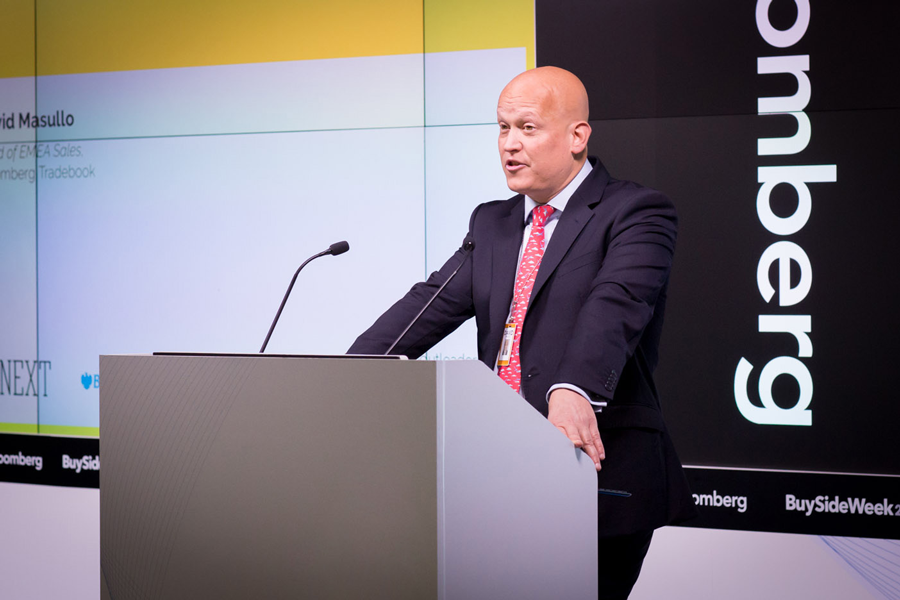
David Masullo, Head of EMEA Sales, Bloomberg Tradebook, welcomed participants on behalf of the host
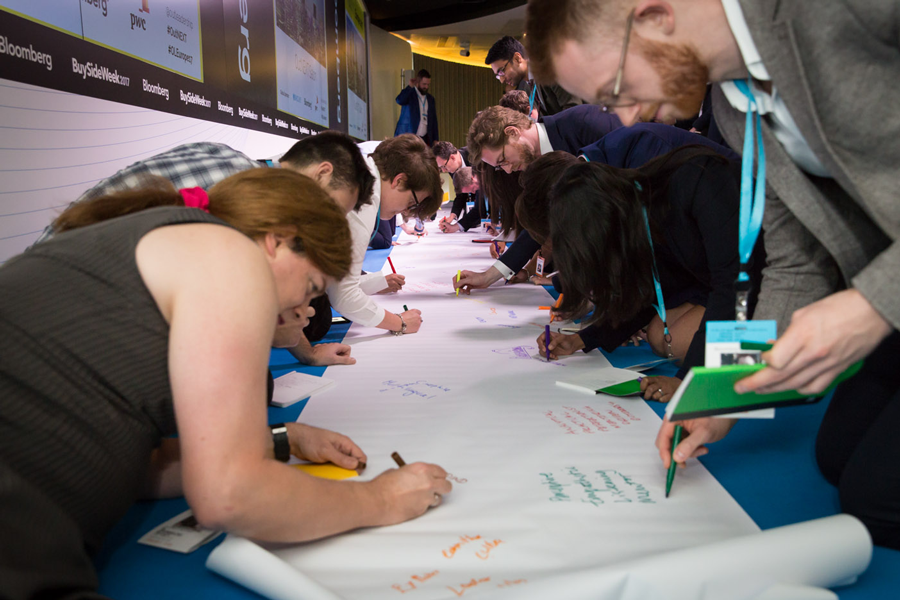
(OutNEXT Participants)
Andy Woodfield, Partner, Leadership, Culture and Talent Programs, PwC, engaged participants in his “Genius. Power. Dreams” curriculum
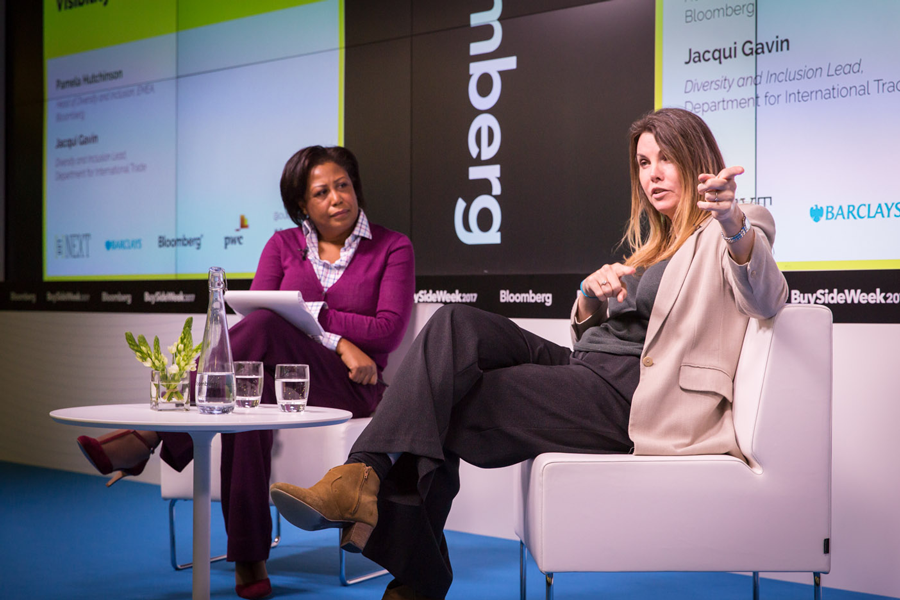
Pamela Hutchinson, Head of Diversity and Inclusion, EMEA, Bloomberg, interviewed Jacqui Gavin, Diversity & Inclusion Lead, Department for International Trade, on her experiences being out at work.
VIP DINNER

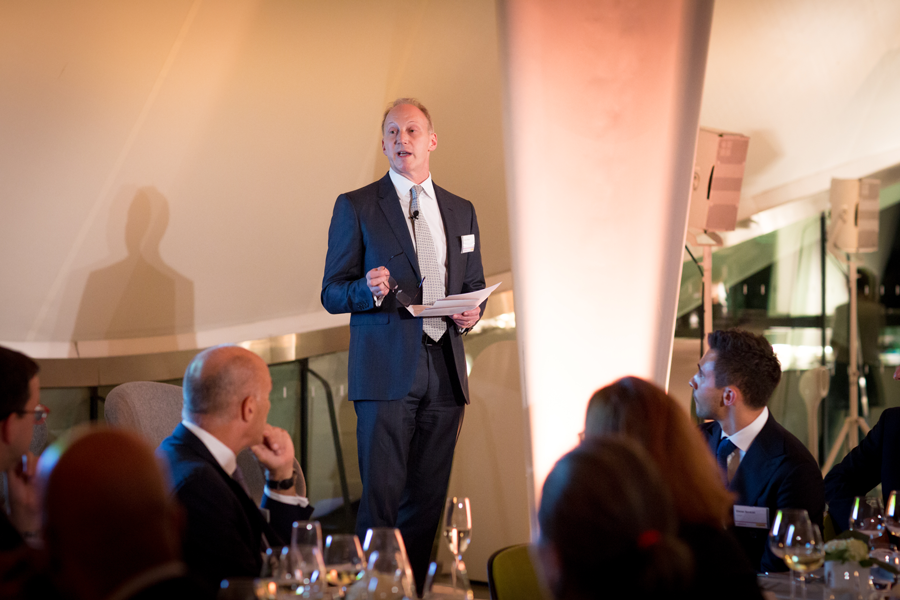
Gideon Moore, Managing Partner of Linklaters LLP, hosted the VIP Dinner at the Serpentine Sackler Gallery.
“When our people thrive, our business thrives,” said Moore. “We are proud to be part of a wider team in the business community committed to driving forward the moral, business and economic case for LGBT+ equality and inclusion around the world.”
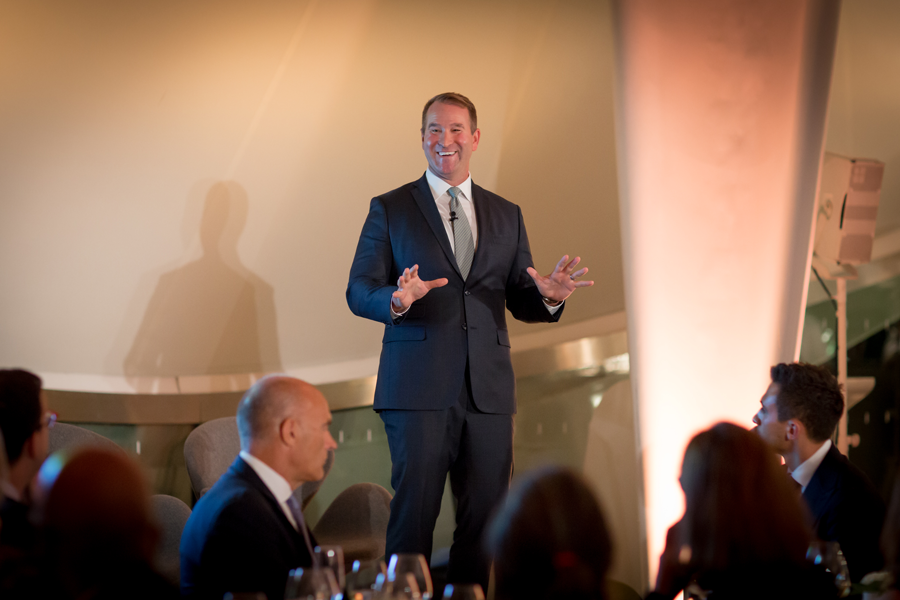
(Todd Sears)
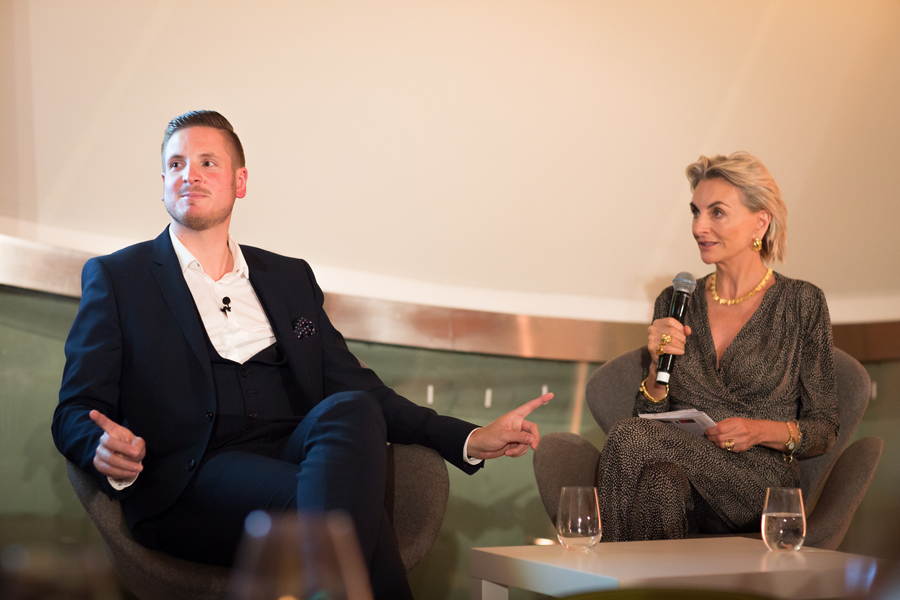
Ryan Atkin, who recently became the first openly gay professional football referee in the world, participated in a conversation with author and broadcaster Frances Edmonds.
“The English Premier League is the most watched League in the world, which makes it a great platform to educate and nurture people,” Atkins said, in discussing his rationale for coming out. “I decided to openly come out as I believe the game needs it and I can drive change with the support of the professional bodies of making the sport inclusive for everyone.”
OutWOMEN BREAKFAST
HSBC hosted the second annual OutWOMEN Breakfast in Europe at their headquarters in Canary Wharf.
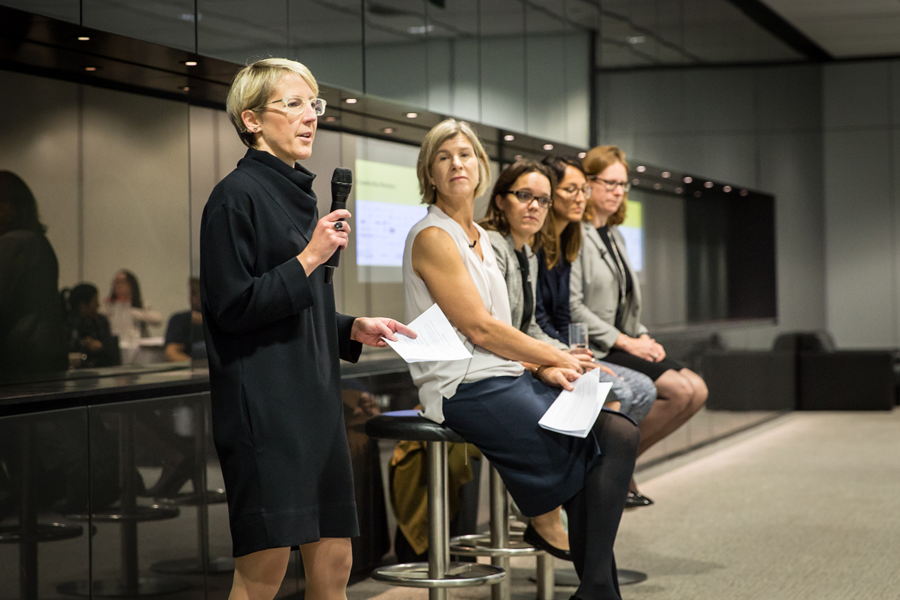
Emily Reid-Smith, Global Head of Competition Law, Deputy GC, HSBC, introduced the morning by noting: “I am better personally and professionally for being out. I feel more invested in HSBC.”

(Stephanie Sandberg, Elaine Penrose, Pema Radha, Sarah Odell)
Out Leadership’s Stephanie Sandberg chaired a short panel discussion intended to introduce key themes for participants to discuss at their tables.
Sarah Odell, Head of Learning and Talent Development, EMEA (excluding UK Ring Fenced Bank), HSBC Bank plc, said: “It’s incredibly useful to be able to share stories and get to know about how other organizations are tackling these issues.”
“Having that solidarity, that affinity, those people in your workplace who can understand your experience, is so critical,” said Elaine Penrose, Partner, Hogan Lovells.
“I didn’t realize how much energy I was investing in trying to pretend to be something I wasn’t,” noted Pema Radha, Director, Global Advisory, EY.
TALENT LANDSCAPE: UNLEASHING THE POWER OF A DIVERSE WORKFORCE
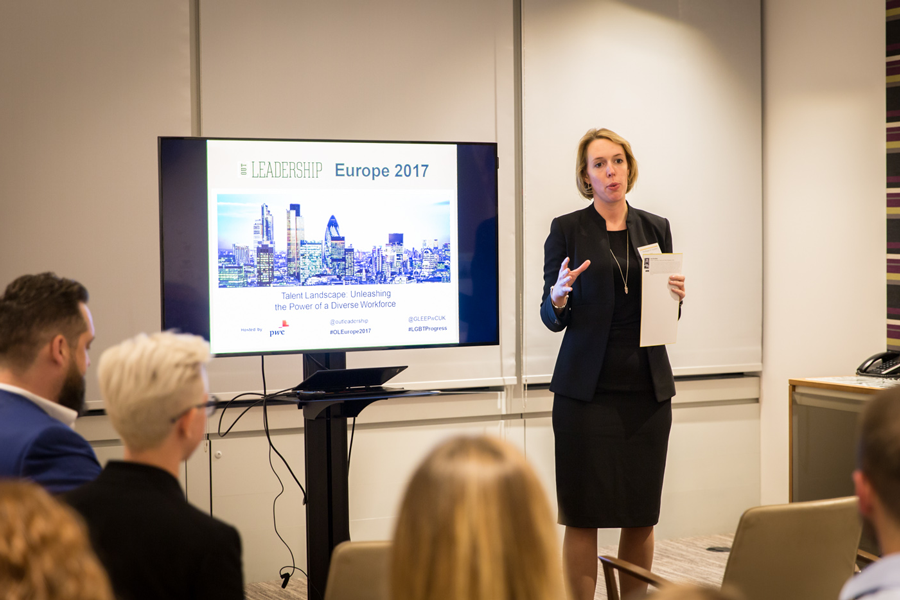
Rounding out the week, Phillippa O’Connor, Partner, PwC, hosted a meeting targeted to talent and D&I practitioners.
Todd Sears convened a conversation about OL-iQ, the first comprehensive global tool for measuring and enhancing business impact around LGBT+ inclusion.
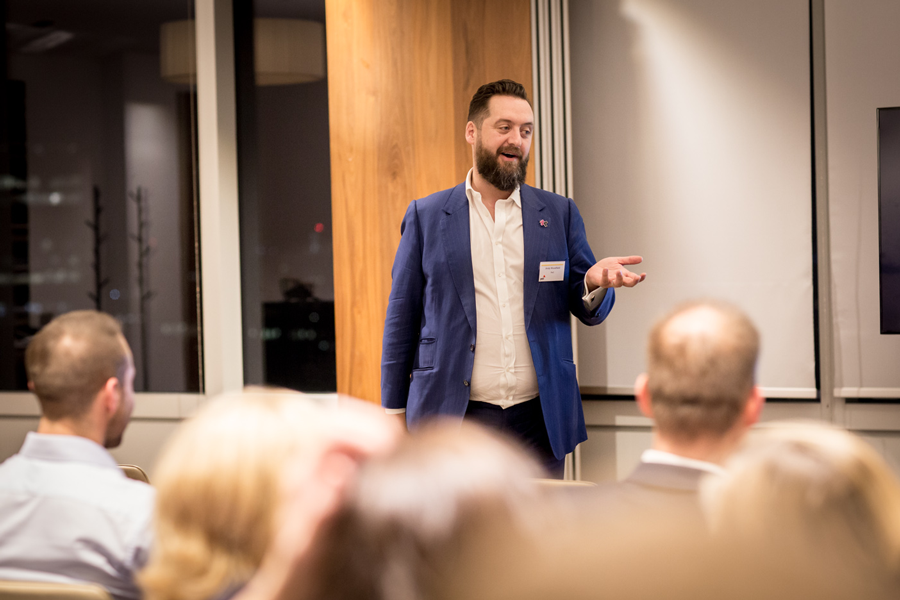
Todd then engaged PwC’s Andy Woodfield in a conversation about the next generation of LGBT+ talent.